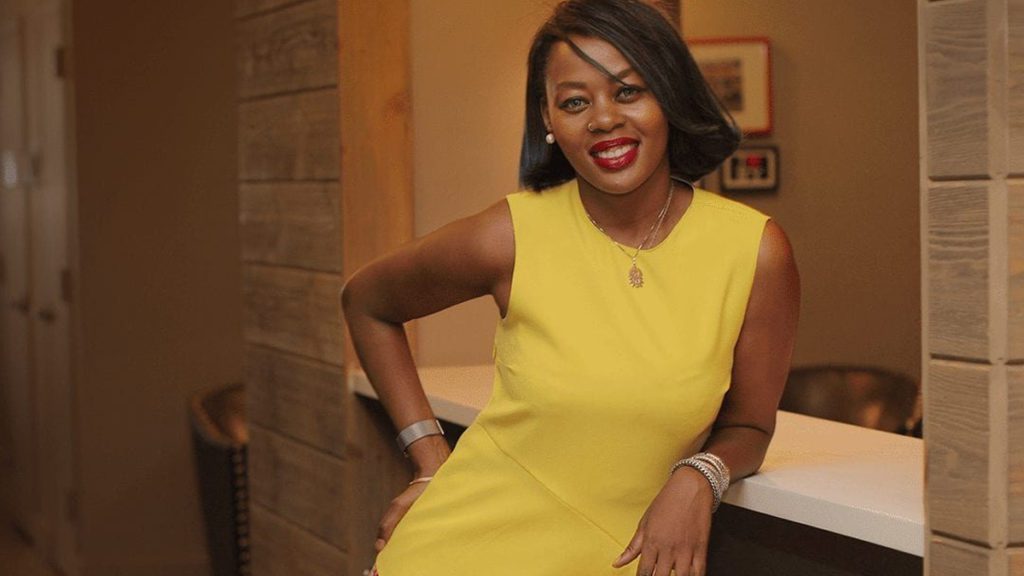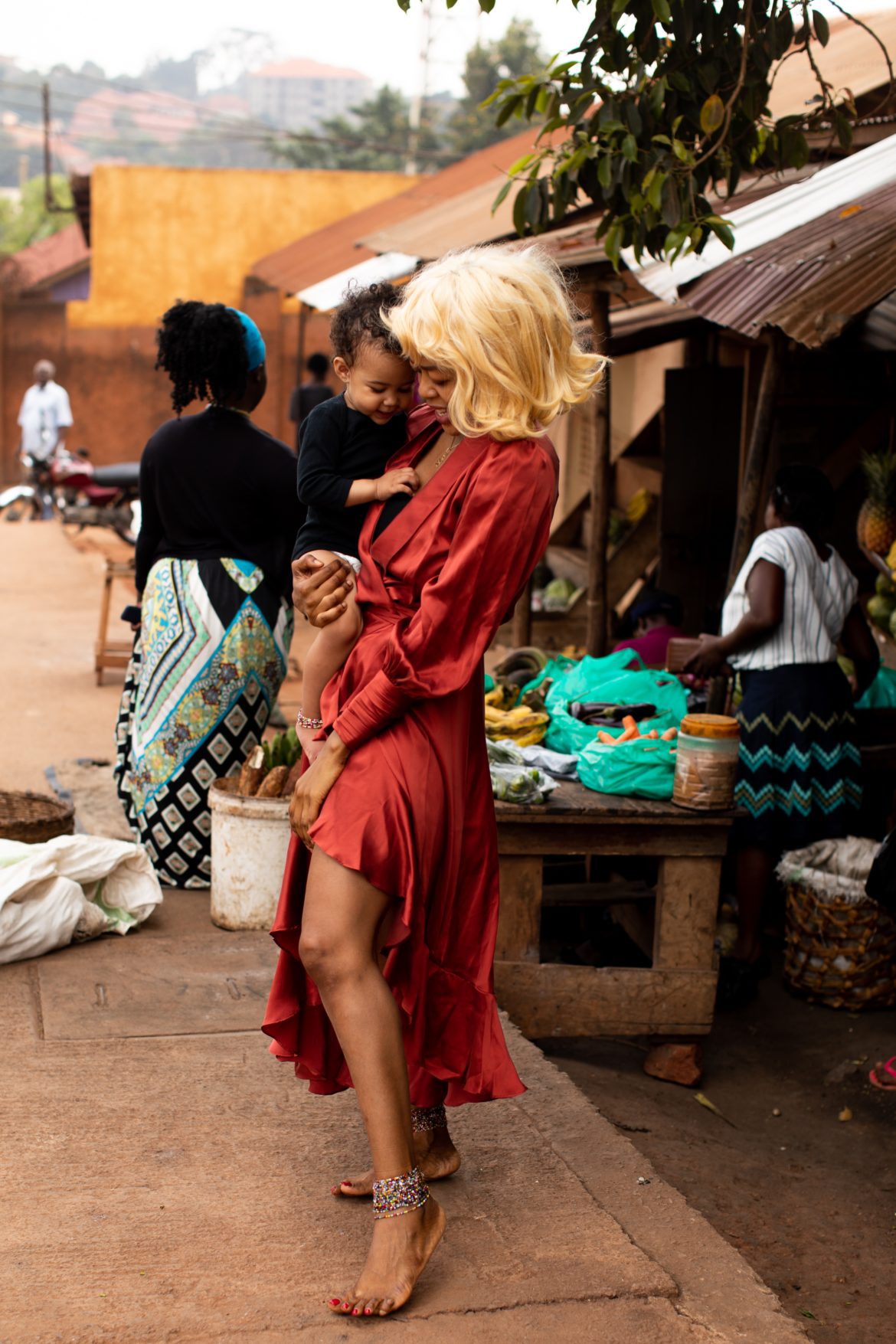RAISED IN RWANDA AND UGANDA, MS. NSABABERA founded Project Hope for Africa, a 501(c)(3) non-profit organization in 2005 to provide women and children with life-saving food, water, and medical supplies in war-torn areas of third world countries through the Department of Peacekeeping Operations for the United Nations.
One of seven children, she is an internationally recognized advocate for rights for all women, regardless of race, color, or faith. Inspired by her mother, a high-ranking Senior Superintendent of Police in the Ugandan Government, Judyth explained, “I saw firsthand the value of having a woman in a leadership position, and when I speak about having more women in peacekeeping, decision-making positions, I know because I have my mother as a living example. My mother is very strong, very independent, and I see myself in her, and the things that I do…I believe in the power of the woman.”
Ms. Nsababera took time from her busy schedule today to answer a few questions. Asked about her daughter, she said, “My daughter was born during the first lockdown, at a time when the world was fearful because of all the uncertainty we were all experiencing not just from the pandemic but also the social justice movements that followed soon after. Through all this I was blessed to see the world through her lens, and I was reminded of the simple things in life, the beauty all around us and it renewed a desire in me to work towards to ensuring that I do my part in creating a better world for her.”
To learn a little more about Uganda, we asked Ms. Nsababera, “In your new position, how you will be able to represent the interests of your country? Of women?” and her response was:
“In 2019 the average age of Uganda’s cabinet was 65-years-old, an age group that accounts for about 2% of the population. In my view, that in part explains the disconnect between the leadership and the majority of the population whose median age is 16. But this is also an opportunity for me to step up and step forward and I hope in doing so, I hope mine and younger generations are encouraged to take up more leadership roles within our civil and diplomatic service. This time feels right because while I can bring the zeal and ideology of a younger generation, it’s a chance to learn from the older generation because within them there is a wisdom that comes with experience and age. More specifically for women, there is a unique perspective and experience of being an African woman that needs to be taken into consideration in global conversations of gender parity and other women focused issues.”

Recently, Ms. Nsababera spoke to a group of 120 women who aspire to reach new heights in their respective fields. She has graciously provided us with the text of her speech, which we are privileged exclusively publish on ReadElysian.
Good Afternoon Ladies.
Thank you for inviting me and giving me the opportunity to be among and speak with this special group of “Maverick Women”.
To be a Maverick is to be unorthodox or an independent-minded person.
And on a personal note – from a very young age I have always been unorthodox, independent-minded. At the age of 16 I had an idea of the kind of life I wanted to live and one thing that was certain to me at that time, I had to leave Uganda to be able to live my dreams.
So I did. At 17 I moved to the United States to pursue my dreams which in turn enabled me to be here with you today.
For the parents here today, you can only imagine the fear, dread, apprehension that consumes you when your teenage child makes a choice to move to a new country on their own and beside the basic life and safety issues they may have to deal with on a day-to-day you also have to contend with this your child making the right choices for themselves amidst the opportunities and challenges that come with living in the United States.
The biggest concern for my family and my mother in particular – coming up at a time when Education was the only option to not just a better life but the future, was whether or not I would be able to further my education. I was able to land a well-paying taking care of the elderly and that in itself is a secure career opportunity, but for me – even miles away from home the lessons that I had been taught; the importance of education, the discipline to work hard at anything you put your mind to the need to further myself not just through formal education but also learning about the world and the things that happen around me meant that every opportunity, all the money that I earned was put towards this.
As such I was able to put myself through different courses, education programs at Colombia, Harvard. I worked for the UN and now the Government of Uganda. But that is my personal journey and although each of us have our own, there are common lessons that we all share that I must touch on today.
The first one is RESILIENCE. I believe in the past 18 months, many of us have heard this word in some shape or form. And the fact is to have been able to survive this past period of this pandemic, lock down and everything that comes with that, each of us has had to dig deep and discovered the RESILIENCE within us. Too many times, we speak of RESILIENCE as something that we need to learn or adapt or this skill that we need to add to our already diverse portfolio of skills. But for me RESILIENCE is
“Being unstoppable, not because you do not have failures or doubts but because you continue despite of them”.
At this particular point, we were all looking forward to the last pandemic restrictions being lifted and our world opening up even more, but with the latest information coming out of Southern Africa and the new variant, this may be a while away. But as long as you remember that you are unstoppable in spite of everything, you, me, we continue to push ahead and hopefully realize our dreams.
And speaking of Dreams.
I was told work hard, play by rules, color within lines and everything will work out. I am sure many of you were told the same. But how many of us were taught or encouraged to dream. To keep lofty ideas about ourselves and our lives alive. I was fortunate to have a headmistress – Sr. Cephas who encouraged me to hang on to my dreams. Because you can’t be what you can’t see and dreams allow us to create that vision of ourselves with no limitations. After all it is a dream.
So even at the hardest of times, when everything seemed to be crashing around me I could always go back to not just my dream, but the voice that encouraged me to hang on to my dreams.
Today I want to remind each and every one of you, No matter where you’re from, no matter where you are in life, no matter what you are going through, your dreams are valid.
And “If you can dream it, you can do it”.
But a dream is not enough without action. Because dreams don’t work unless you do. Work is not just about the individual effort that you put into being resilient or chasing your dreams but what we do as a collective.
One of the most frustrating narratives that is constantly put out there is women don’t like to work together. But it gets even more frustrating and compounds the problem when they say Ugandans don’t like working together.
Which means that as women – Ugandan women it is double the trouble when it comes to working together and collaborating.
Now I don’t know the extent to which this narrative is true or false. What I do know is
“Alone we can do so little; Together we can do so much”.
Whatever our dreams look like, each of us is working to build a better world for ourselves and our children and if we are lucky their children as well. But we cannot do it on our own and we cannot do it within the safety of our safe spaces.
That is why opportunities for us as women to come together to share, connect, build camaraderie are important for me. When you look around us, the world is facing unprecedented challenges which in turn require unprecedented solutions. One of those solutions in my view lie in the supportive community of women that we build going forward.
The Ugandan Embassy in China is No. 5, San Li Tun Dong Jie, in Beijing.

